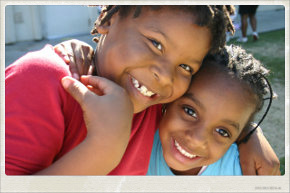Translators Associations Africa
Africa: The most multilingual continent in the world has few translators associations
 Africa is the world's second-largest and second-most-populous continent, after Asia. Despite the continent having around two thousand different languages, the translators associations based in this continent can be counted on two hands. Africa is the world's second-largest and second-most-populous continent, after Asia. Despite the continent having around two thousand different languages, the translators associations based in this continent can be counted on two hands.
With about 11,7 million square meters and 54 fully recognized sovereign states, 9 territories and three de facto states with limited recognition, Africa is the home of over one billion people, which is the same as saying it accounts for about 14.72% of the world's population.
UNESCO has estimated that around two thousand languages are spoken in Africa. Most are of African origin, though some are of European – Europe is the world's region with the largest number of translators associations – or Asian origin .
There are four major language families indigenous to Africa: the Afro-Asiatic languages, a language family of about 240 languages and 285 million speakers; the Nilo-Saharan language family, consisting of more than a hundred languages spoken by 30 million people; the Niger–Congo language family, that covers much of Sub-Saharan Africa and is probably the largest language family in the world in terms of different languages; and the Khoisan languages, that number about fifty and are spoken in Southern Africa by approximately 120,000 people.
Following the end of colonialism, nearly all African countries adopted official languages that originated outside the continent. In numerous countries, English and French are used for communication in the public sphere such as government, commerce, education and the media.
Arabic, Portuguese, Afrikaans and Spanish are other examples of languages that are used by millions of Africans today and trace their origin to outside of Africa.
If you think about it, the relation between the multilingualism and the number of translators associations is somewhat paradoxical.
In the continent, there are translators associations in Ethiopia, Morocco, Nigeria and South Africa. The lack of development in the chapter can, perhaps, be explained by the economical and social characterization of this continent.
The National Association of Translators and Interpreters of Ethiopia, a country with a population of 75 million inhabitants, is based in Addis Ababa.
In Morocco, the year 2002 gave birth to the Morocco's Legal Translators Association.
Nigeria also has a translators association: NITI is “an offshoot” of the Nigerian Association of Translators and Interpreters (NATI), founded in 1978, on campus at the University of Lagos.
Founded in 1946, SATI is the only translators association that Lexis has record of in South Africa.
In Egypt, there are at least two translators associations.
History
Africa is widely regarded within the scientific community to be the origin of humans and the Hominidaeclade (great apes) and is considered by most paleoanthropologists to be the oldest inhabited territory on Earth.
Between the 15th and the 19th centuries, the Atlantic slave trade, took an estimated 7–12 million African slaves to the New World.
The end of slavery was followed by the colonialism and the "Scramble for Africa".
Following World War II, which left the major European powers weakened, independence movements in Africa gained momentum and colonies gained independence.
Today, Africa contains 54 sovereign countries, most of which still have the borders drawn during the era of European colonialism. Since then, African states have frequently been hampered by instability, corruption, violence, and authoritarianism.
Cold War conflicts between the United States – that by the way has around two dozen translators associations – and the Soviet Union, as well as the policies of the International Monetary Fund, played a role in instability a long with independence struggles.
In the 21st century, the number of armed conflicts in Africa has steadily declined and some of these African states, ‘led’ by Angola, are today emerging markets that attract foreign investors and Western companies. People's Republic of China is the clearest case of a country that's building increasingly stronger ties with African nations.
Although it has abundant natural resources, Africa remains the world's poorest and most underdeveloped continent. Poverty, illiteracy, malnutrition and inadequate water supply and sanitation, as well as poor health, affect a large proportion of the people who reside in the continent.
LEXIS INFORMS:
As a member of Lexis, one of your privileges is the access to Syntax Advance, an exclusively professional search engine. Check it out. Lexis – Connections with meaning
PUB:
The Lexis Translators Associations News project has the support of the Red Horse. If you need a non-discloser agreement, visit the website www.redhorse-nda.com.
Read other news about translators associations from Africa.
|

